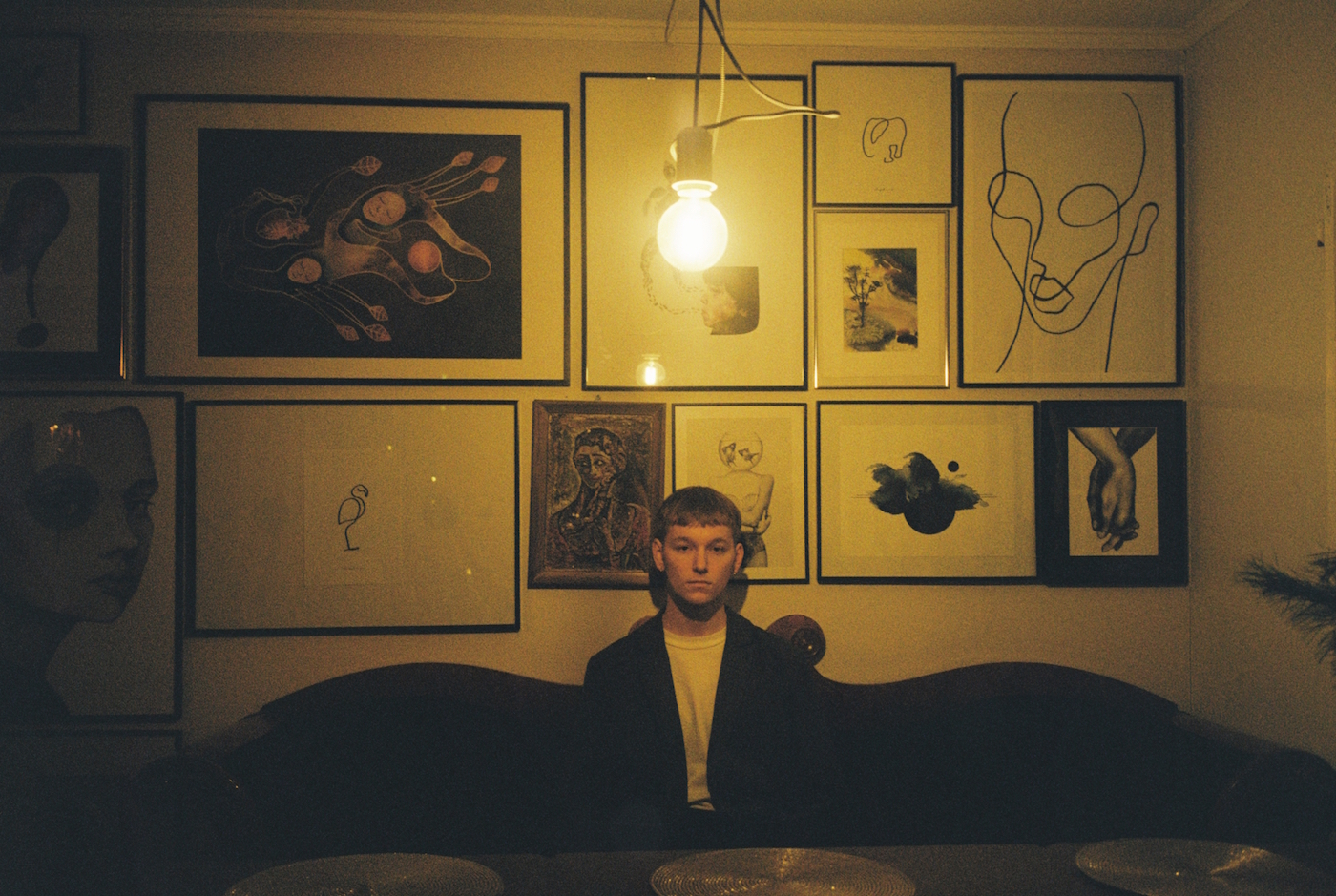TMR TALKS TO...
RUBEN DAWNSON
In this interview feature, we get to know the most radicalist up and coming stars on the planet.
This time we’re chatting with Ruben Dawnson, a Norwegian newcomer gearing up for the release of his debut EP.
In the runup to the release of Echo Emotions, Dawnson dropped two incredibly impressive singles. ‘FYALMA’ was a personal tale detailing the struggle with anxiety that was full of powerful, catchy hooks, while ‘SAYIMGOOD’ (the opening track) is another banger with introspective lyrics that sit above a bouncy drum pattern. There are four tracks on the release that we haven’t heard yet, each one more impressive than the last. Dawnson is able to blend the honesty and rawness of lyrics that come from his own experiences with a compositional style that merges hip-hop, R&B and indie seamlessly and a talent for finding the perfect balance between lo-fi and glittering live audio.
We were lucky enough to delve into the details of each track and explore what goes on behind the scenes when Dawnson writes.
TMR: Which track that we haven’t already heard from Echo Emotions are you most excited for your audience to hear?
That’s a hard one because it changes all the time. I think the song that I love the most right now is the title track called ‘Echo Emotions’, just because it’s very different and kind of, a little bit more, experimental in a way. It’s quite short but I’m excited for that one if I have to choose one.
TMR: ‘FYALMA’ is obviously a very personal track touching on struggles with anxiety. What made you decide to turn this into music?
I think I just felt the need to do it in a way. It wasn’t a conscious decision of, “I'm going to write this song to get the message out there,” it was more like “Ok, I’m feeling this now, I have to just get this out of my system.”
TMR: How do you manage to juxtapose the bouncy percussion and jangly, fuzzy guitars of ‘SAYIMGOOD’ with the introspection and disorientation of the lyrics?
It’s actually very nice that you caught that one, because that’s sort of my whole thing, well not my whole thing but one thing. No matter what I do, my lyrics are going to be super introspective and personal and honest, because that’s just the only way I know how to write. But then I love so many different styles, so whatever happens, happens.
TMR: A lot of tracks on the EP experiment with lo-fi production; the drum pattern on ‘Still Moving’ is particularly effective. What is it about that grainy, lower quality sound that you think works so well with your music?
Well, I would say it’s more mid-fi than lo-fi. One thing I love about that sort of warm sound is that it’s a little more dynamic, and sounds a bit less polished or perfect. I really don’t like when stuff sounds too plastic or perfect, so that’s the sound that I try to go for when I make music.
TMR: Why did you choose to treat your vocals with the pitch shifting effect on the title track?
There are several reasons, cause the pitch vocals represent sort of different personalities or even different characters in a way. It represents a duality, which is the focus of the whole EP. One aspect is thematic and I think it just sounds cool. So there’s like two aspects, thematically and sonically.
TMR: Speaking of ‘Echo Emotions’, it certainly sounds like a conclusion to the release. Have you structured the EP in a specific way that you expect people to follow, or do you simply view it as a collection of unrelated tracks?
Definitely a piece to follow, it’s just not random songs, there are different songs and different styles so I hope there is something in there for everyone. At the same time I think thematically, it’s a whole thing you can listen to and enjoy as a concept EP, if you can call it that.
TMR: What did your first attempt at making music sound like?
Wow, I wish I could show you but if I did, I wouldn’t have a career anymore… it sounded horrible. I’ve definitely developed and progressed since then. I didn’t start writing songs on a piano or a guitar, or anything that sounds good, like many people do. I just bought studio equipment and started producing, and it sounded shit for a long time.
TMR: Do you take influence from anything/anyone non-musical when writing?
Yeah, definitely. I feel like everyone says this, but as artists we are influenced by everything we see and experience. I’m very into design, visuals, lights and things like that, so that inspires me a lot.
TMR: Having said that, who would be your dream collaborator?
There are so many people I’d like to work with… but Pharrell Williams would be cool, he seems like one of the best collaborators, so Pharrell... or Sampha, or Hans Zimmer!
TMR: Do you get more satisfaction from seeing the audience response to live shows or studio releases?
Good question. When people are sending me personal messages and telling me how much my songs mean to them, that touches my heart a lot. But of course playing live gives you a different sort of energy and euphoria that is very present at the time so I’d choose both.
By Dan Peeke




